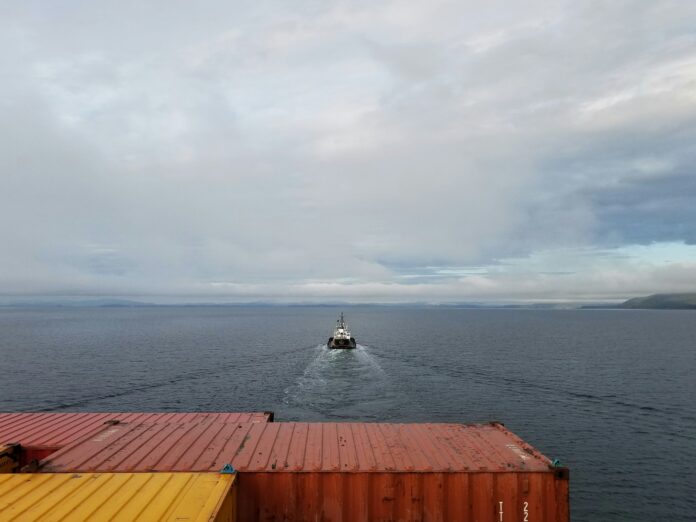
Shipping is a massive industry, but it’s no secret that managing operations can feel like navigating rough waters. Rising fuel costs, unexpected equipment failures, and cybersecurity threats often create headaches for business owners and crew members alike. These challenges slow progress, drain resources, and threaten safety.
Here’s the good news: advancements in artificial intelligence (AI) and managed IT services are making significant improvements in maritime operations. For example, AI-powered tools now refine routes and predict maintenance needs with impressive accuracy. This blog examines how these technologies are improving shipping efficiency while reducing risks. Keep reading to learn practical ways they can simplify your daily operations!
The Role of AI in Modern Maritime Operations
AI changes how ships navigate and maintain their systems. It addresses challenges with accuracy, enhancing daily operations at sea.
Optimizing route planning and fuel efficiency
Efficient routes save money and reduce environmental impact. AI analyzes weather patterns, ocean currents, and vessel performance to identify the most suitable path. Choosing shorter or smoother routes lowers fuel consumption, cutting costs by up to 20%. This forward-thinking approach also helps avoid delays caused by storms or high congestion at ports.
Smart systems monitor engine efficiency in real-time. Shipping companies can adjust speed for ideal fuel usage during voyages. Even a slight speed change can result in noticeable savings over time. As ships burn less fuel, they produce fewer emissions, supporting eco-friendly initiatives worldwide. Small changes in route planning today leave a big difference in tomorrow’s shipping efficiency.
Predictive maintenance for vessels and equipment
Artificial intelligence observes vessel components, spotting potential issues early. Sensors monitor engine performance, fuel systems, and essential machinery in real-time. This information helps prevent unexpected breakdowns that could interrupt shipping schedules. For instance, AI can recognize unusual vibrations or temperature increases in equipment before they lead to expensive repairs.
Predictive maintenance minimizes downtime and increases equipment lifespan. Operators are notified to replace worn-out parts or make adjustments quickly. It also reduces unneeded service checks by addressing actual needs rather than fixed intervals. Businesses save money by enhancing operational efficiency while ensuring ships stay dependable throughout their journeys.
Managed IT Services in Shipping
Managed IT services assist shipping companies in staying competitive in an ever-evolving environment. They safeguard operations, streamline workflows, and ensure systems function efficiently at all times.
Enhancing cybersecurity in maritime operations
Cyberattacks on shipping companies increased by 400% between February and June 2020. Hackers often target onboard systems, cargo data, and communication networks. Investing in reliable IT services protects vessels from ransomware and data breaches.
Firewalls, encrypted communications, and regular updates make these critical operations more secure from external threats. For shipping companies looking to strengthen defenses even further, partnering with providers that offer expert IT support in San Antonio can ensure cybersecurity measures are proactive and dependable.
A single breach can lead to delayed shipments or safety hazards for the crew. Ships today rely heavily on digital navigation tools and automated controls that hackers could exploit if left unprotected. Cybersecurity measures serve as the primary defense against such risks while ensuring more efficient daily operations. Securing maritime tech isn’t just about protection; it’s about preparedness for tomorrow’s challenges.
Streamlining communication and data sharing
Shipping companies exchange massive amounts of data daily, from cargo information to port schedules. AI-driven tools simplify this process by automating communication channels and reducing human delays. Crew members can instantly access real-time updates about vessel routes or weather conditions, reducing confusion during operations. Managed IT services ensure secure systems that prevent unauthorized access while maintaining effective data sharing across teams.
Cloud technology plays a big role in keeping operations connected over long distances. Teams at sea stay linked with offices onshore through integrated platforms designed for shipping needs. To see how this works in practice, you can meet Gravity Systems’ team, who specialize in creating seamless IT networks that keep communication reliable and secure. These systems allow instant tracking of shipments and better coordination between global ports, enhancing supply chain efficiency efforts. Clearer communication improves operations while minimizing costly disruptions caused by outdated practices or unreliable methods.
Integration of AI and IoT in Shipping
AI and IoT are reshaping shipping by enabling quicker and more intelligent decision-making. They work together to enhance operations, minimizing inefficiencies in unprecedented ways.
Smart sensors for real-time data collection
Smart sensors collect current data on vessel performance, cargo conditions, and weather patterns. They provide precise updates that assist shipping companies in making prompt decisions. For example, temperature sensors in refrigerated containers ensure perishable goods remain fresh during transport.
These sensors also monitor fuel usage and engine health to prevent expensive breakdowns or delays. Companies gain better supply chain transparency, improving operational effectiveness and lowering risks associated with unexpected problems.
Leveraging Digital Twins for operational efficiency
Smart sensors gather real-time data, but digital twins advance the concept. These virtual replicas of vessels and ports allow businesses to test scenarios without affecting operations. For instance, shipping companies can predict fuel consumption by simulating different routes under varying weather conditions.
Digital twins also enhance maintenance planning. A replica of a ship’s engine might indicate wear patterns before they become critical issues. This reduces downtime and repair costs while improving operational efficiency. With accurate insights, decision-making becomes faster and more precise in maritime technology systems.
Key Benefits of AI and Managed IT Services
AI reduces wasted resources and enhances work precision. Managed IT services enhance operational control across shipping networks.
Increased cost savings and operational efficiency
Shipping companies cut fuel consumption by improving routes with predictive analytics. Adjusting vessel speeds and avoiding congested ports saves millions annually. Real-time monitoring of equipment prevents unexpected breakdowns, reducing maintenance costs.
Managed IT services improve operations by automating repetitive tasks like cargo tracking. This helps crews focus on critical decisions while enhancing supply chain management processes. Simplified systems reduce errors, keeping expenses in check and operations efficient.
Improved safety and reduced human error
AI-powered systems actively monitor vessel operations and identify irregularities in real time. These tools process vast amounts of data more quickly than human crews, recognizing potential risks before they worsen. For example, predictive analytics can notify teams about upcoming mechanical issues or navigational dangers.
Managed IT services enhance safety protocols by maintaining secure communication between ship and shore. They also offer automated notifications that reduce reliance on manual decision-making. This not only lessens mistakes but also safeguards crew members from avoidable accidents during high-pressure situations.
Conclusion
Technology is guiding the shipping industry toward a smarter future. AI and managed IT services are transforming how fleets operate, enhancing safety and efficiency. Shipping companies now depend on data-focused tools to lower costs, minimize risks, and refine workflows. These developments aren’t just trends; they are essential for remaining competitive in current maritime operations. The sea may be vast, but with the right tech approaches, navigating it becomes much easier!





